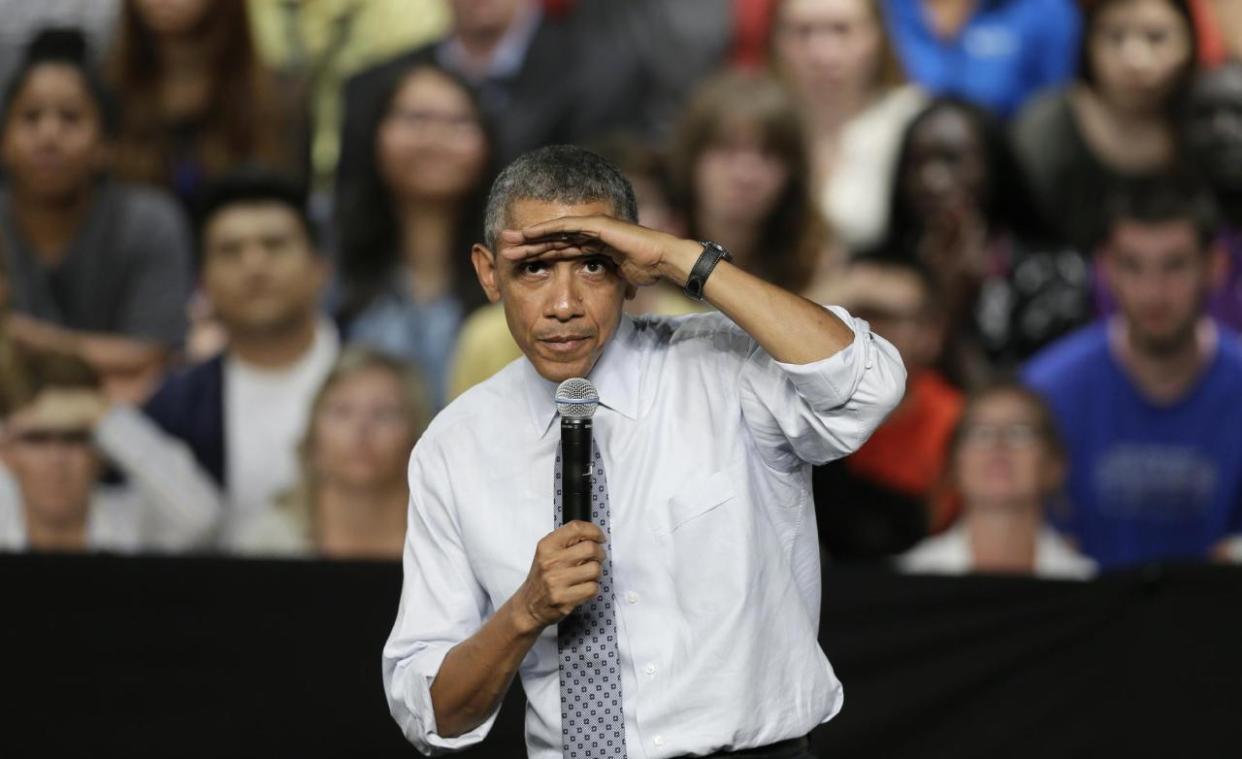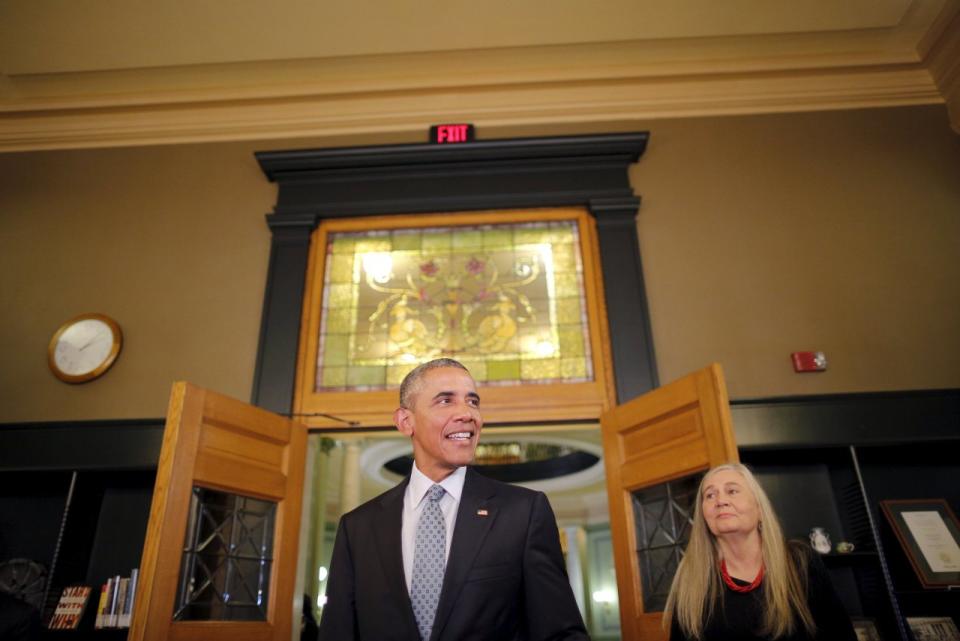Obama: Fox News made me seem ‘scary’ to small-town America

President Obama speaks during a town hall meeting in Des Moines, Iowa, in September. (Photo: Charlie Neibergall/AP)
President Obama says he was able to connect with small-town folks in places like Iowa in 2008 because nobody expected him to win and he wasn’t viewed through “this prism of Fox News” and other conservative media outlets that made him “scary.”
“People always, I think, were surprised about me connecting with folks in small-town Iowa,” Obama said in an interview with Pulitzer Prize-winning author Marilynne Robinson in the New York Review of Books published online Monday. “And the reason I did was, first of all, I had the benefit that at the time nobody expected me to win. And so I wasn’t viewed through this prism of Fox News and conservative media, and making me scary. At the time, I didn’t seem scary, other than just having a funny name. I seemed young. Sometimes I look at my pictures from then, and I say, I can’t believe anybody voted for me, because I look like I’m 25.”
Obama said the childhood experience of visiting his grandparents in Kansas helped his candidacy.
“I’d go into these towns and everybody felt really familiar to me, because they reminded me of my grandparents,” Obama said. “You saw it all through the state — and I saw this when I was traveling through southern Illinois when I was first campaigning for the United States Senate — and I actually see it everywhere across the country.”
But the president said there’s a stark divide between small-town values and divisive American politics.
“There’s this huge gap between how folks go about their daily lives and how we talk about our common life and our political life,” Obama said. “People describe it as the distance between Washington and Main Street. But it’s not just Washington; it’s the way we talk about our politics, our foreign policy, our common endeavors. There’s this gap.”

President Obama arrives at the State Library of Iowa in Des Moines accompanied by author Marilynne Robinson in September. (Photo: Carlos Barria/Reuters)
“And the thing I’ve been struggling with throughout my political career is, how do you close the gap?” he continued. “There’s all this goodness and decency and common sense on the ground, and somehow it gets translated into rigid, dogmatic, often mean-spirited politics. And some of it has to do with all the filters that stand between ordinary people who are busy and running around trying to look after their kids and do a good job and do all the things that maintain a community, so they don’t have the chance to follow the details of complicated policy debates.”
He added: “I’m very encouraged when I meet people in their environments. Somehow it gets distilled at the national political level in ways that aren’t always as encouraging.”
Obama also discussed how Americans’ dissatisfaction with government is a double-edged sword:
That’s part of what makes America wonderful, is we always had this nagging dissatisfaction that spurs us on. That’s how we ended up going west, that’s how we — “I’m tired of all these people back east; if I go west, there’s going to be my own land, and I’m not going to have to put up with this nonsense, and I’m going to start my own thing, and I’ve got my homestead.” … It is true, though, that that restlessness and that dissatisfaction which has helped us go to the moon and create the Internet and build the Transcontinental Railroad and build our land-grant colleges, that those things, born of dissatisfaction, we can very rapidly then take for granted and not tend to and not defend and not understand how precious these things are.
And this is where conceptions of government can get us in trouble. Whenever I hear people saying that our problems would be solved without government, I always want to tell them you need to go to some other countries where there really is no government, where the roads are never repaired, where nobody has facilitated electricity going everywhere even where it’s not economical, where the postal system doesn’t work or kids don’t have access to basic primary education. That’s the logical conclusion if, in fact, you think that government is the enemy.
And that, too, is a running strain in our democracy. That’s sort of in our DNA. We’re suspicious of government as a tool of oppression. And that skepticism is healthy, but it can also be paralyzing when we’re trying to do big things together.
It’s not the first time Obama has called out Fox News by name.
In 2013, the president blamed gridlock in Congress, in part, on the News Corp.-owned cable network.
“If a Republican member of Congress is not punished on Fox News or by Rush Limbaugh for working with a Democrat on a bill of common interest,” Obama told the New Republic, “then you’ll see more of them doing it.”
He added: “The same dynamic happens on the Democratic side. I think the difference is just that the more left-leaning media outlets recognize that compromise is not a dirty word.”


